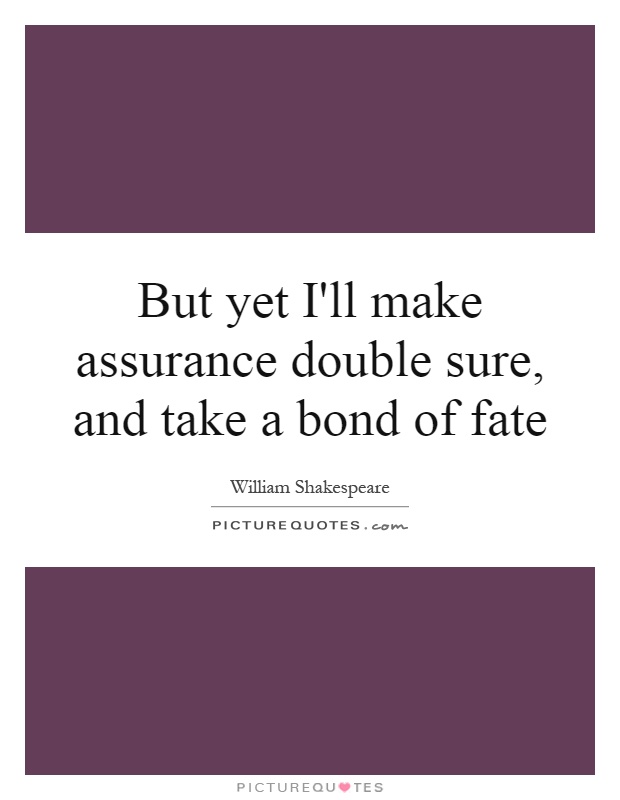But yet I'll make assurance double sure, and take a bond of fate

But yet I'll make assurance double sure, and take a bond of fate
In William Shakespeare's play, Macbeth, the character Macbeth utters the famous line, "But yet I'll make assurance double sure, and take a bond of fate." This line is spoken by Macbeth as he contemplates the murder of King Duncan in order to fulfill the witches' prophecy that he will become king. The line reflects Macbeth's inner turmoil and his desire to ensure that his actions will lead to the desired outcome.The phrase "make assurance double sure" suggests that Macbeth wants to be absolutely certain of the success of his plan. He is not content with simply taking the witches' prophecy at face value; he wants to take extra precautions to ensure that he will indeed become king. This reflects Macbeth's ambitious and ruthless nature, as he is willing to go to great lengths to achieve his goals.
The phrase "take a bond of fate" further emphasizes Macbeth's belief in destiny and the idea that his actions are preordained. By taking a "bond of fate," Macbeth is essentially making a pact with destiny, trusting that his actions will lead to the outcome he desires. This shows Macbeth's fatalistic worldview and his belief that he is fated to become king, regardless of the consequences.
Overall, this line encapsulates the central themes of fate and ambition in Macbeth. It highlights Macbeth's inner conflict as he grapples with the moral implications of his actions and his relentless pursuit of power. The line also foreshadows the tragic consequences of Macbeth's actions, as his ruthless ambition ultimately leads to his downfall.












 Friendship Quotes
Friendship Quotes Love Quotes
Love Quotes Life Quotes
Life Quotes Funny Quotes
Funny Quotes Motivational Quotes
Motivational Quotes Inspirational Quotes
Inspirational Quotes